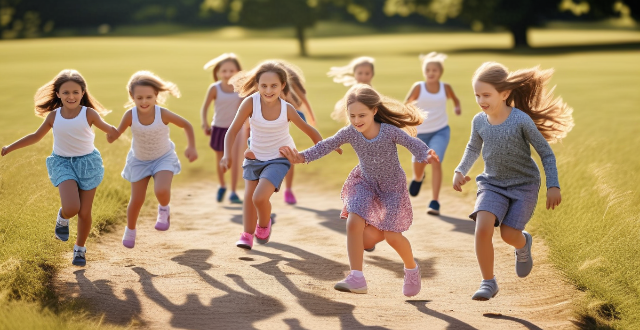Promoting gender equality and empowering women and girls through sports involves increasing visibility, ensuring fair representation, improving access and inclusivity, providing education and training, implementing policy and legislation, promoting health and wellness, encouraging economic empowerment, engaging the community, and fostering cultural change. These efforts aim to break down barriers, challenge stereotypes, and create opportunities for women and girls to thrive both on and off the field.

Promoting Gender Equality and Empowering Women and Girls Through Sports
Sports have the power to break down barriers, challenge stereotypes, and promote gender equality. By harnessing the unifying nature of athletics, we can create opportunities for women and girls to thrive both on and off the field. Here's how:
1. Increasing Visibility
- Role Models: Amplify the presence of female athletes in mainstream media to provide role models for young women and girls.
- Coverage Balance: Ensure balanced coverage of men's and women's sports events to reflect the importance and skill involved in both.
2. Fair Representation
- Equal Opportunities: Advocate for equal opportunities in sports programs and competitions at all levels, from grassroots to professional leagues.
- Fair Pay: Fight for equal pay for equal work in professional sports to address the gender pay gap.
3. Access and Inclusivity
- Facilities and Equipment: Ensure that women and girls have access to the same quality facilities and equipment as their male counterparts.
- Safe Spaces: Create safe and inclusive environments where women and girls feel comfortable participating without fear of harassment or discrimination.
4. Education and Training
- Coaching: Increase the number of female coaches and trainers to provide mentorship and guidance tailored to the needs of women and girls.
- Sports Education: Integrate gender equality into sports education curricula to foster respect and understanding among young athletes.
5. Policy and Legislation
- Non-Discriminatory Policies: Implement policies that prohibit gender-based discrimination in sports organizations and competitions.
- Funding Parity: Lobby for equal funding for women's sports programs to ensure they receive the necessary resources to succeed.
6. Health and Wellness
- Physical Health: Educate about the importance of sports in maintaining physical health, particularly highlighting benefits for women and girls.
- Mental Health: Use sports as a tool to improve mental well-being by promoting teamwork, self-esteem, and resilience.
7. Economic Empowerment
- Career Opportunities: Showcase the diverse career opportunities available within the sports industry, encouraging women and girls to pursue careers in sports management, journalism, marketing, etc.
- Entrepreneurship: Support female entrepreneurs who start businesses related to sports, such as athletic wear brands or sports tech startups.
8. Community Engagement
- Grassroots Programs: Develop community-based sports programs specifically designed to engage underprivileged girls and women.
- Partnerships: Collaborate with local schools, NGOs, and government agencies to organize sports events that promote gender equality.
9. Cultural Change
- Stereotype Busting: Challenge traditional gender stereotypes that suggest certain sports are "for men only" or that female athletes are less capable than their male counterparts.
- Media Narratives: Change media narratives surrounding women's sports to focus on achievements rather than appearance or relationships.
By taking these steps, sports can become a powerful platform for gender equality, empowering women and girls to reach their full potential both in the realm of athletics and beyond.